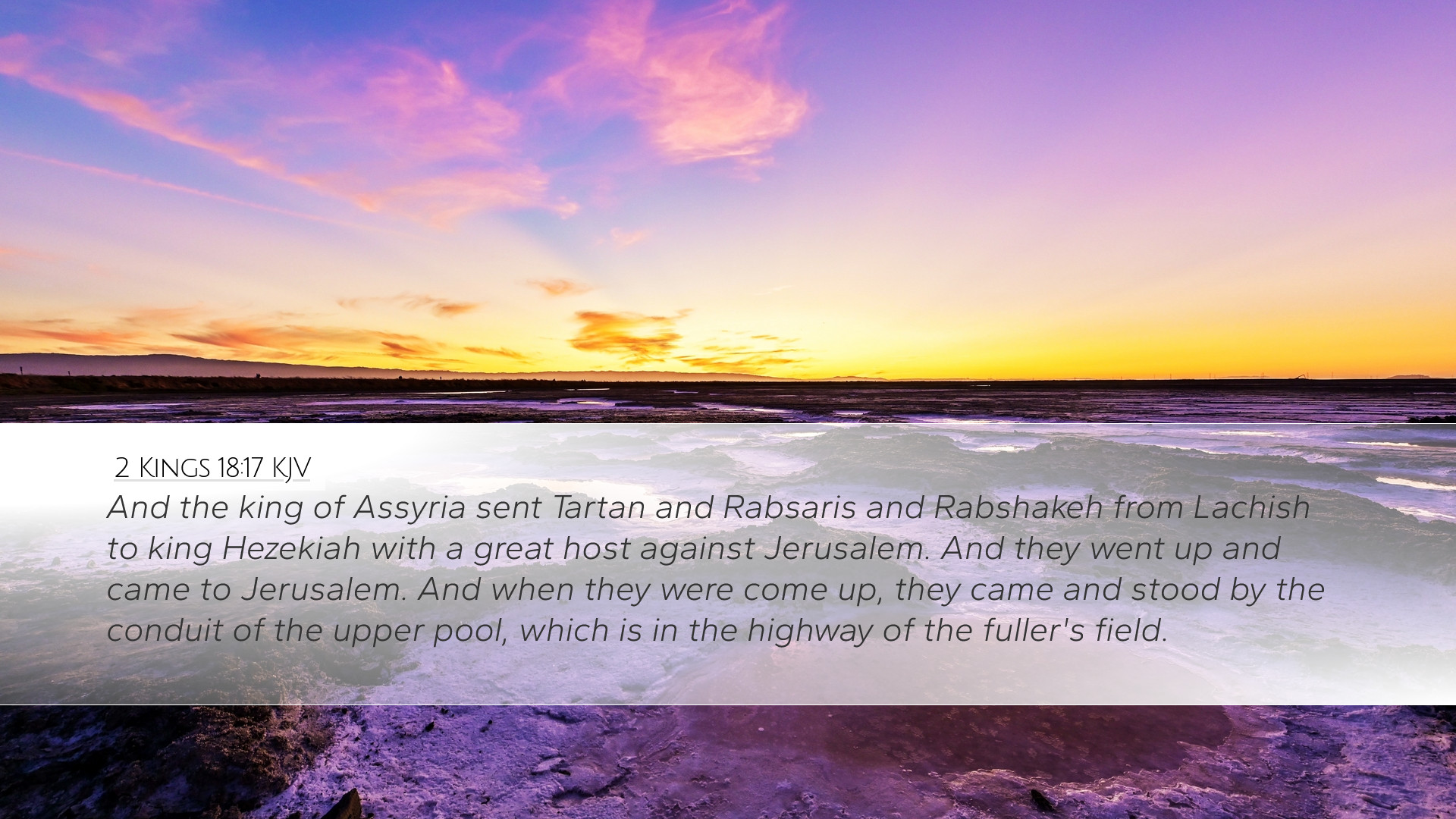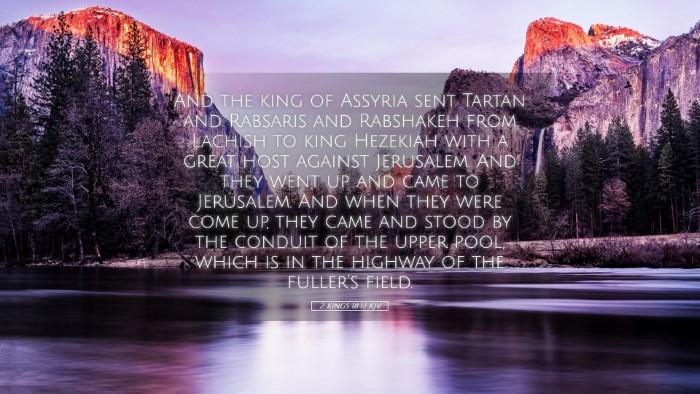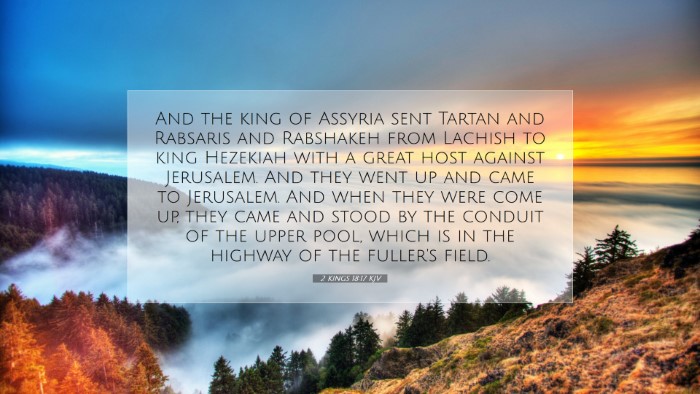Commentary on 2 Kings 18:17
Verse: "And the king of Assyria sent Tartan and Rabsaris and Rabshakeh from Lachish to king Hezekiah with a great host against Jerusalem. And they went up and came to Jerusalem: and when they were come up, they stood by the conduit of the upper pool, which is in the highway of the fuller’s field."
Introduction
This verse marks a significant moment in the narrative of King Hezekiah's reign and the Assyrian threat. The military might of Assyria, represented by their high-ranking officials, confronts Jerusalem, highlighting the themes of trust, fear, and divine intervention that permeate this section of Scripture. This commentary draws on insights from esteemed public domain theologians to unpack the verse’s implications for leadership, faith, and the historical context.
Contextual Background
Hezekiah, the son of Ahaz, became king of Judah and initiated major religious reforms. His reign was marked by a constant struggle against Assyrian expansionism. In the larger narrative, this moment symbolizes the climax of that conflict, where Hezekiah's faith and leadership are put to the test.
Assyrian Influence
Assyria was the dominant power at the time, known for its brutal conquests and strategies. The mention of Tartan (a title for a high commander), Rabsaris (the chief officer), and Rabshakeh (the spokesman) suggests a well-coordinated military strategy aimed at intimidating Jerusalem.
Literary Analysis
In this passage, the narrative introduces the Assyrian delegation with their titles, signifying their authority and the seriousness of their mission. The detail of their arrival strategy, as they stand by the upper pool's conduit, indicates a well-planned psychological warfare intended to unsettle Hezekiah and the citizens of Jerusalem.
Theological Insights
The events surrounding this verse bring to light important theological themes that resonate with contemporary believers:
- Divine Sovereignty: While Assyria appears powerful, the narrative invites readers to examine God’s overarching control over nations and leaders.
- Human Fear vs. Faith: Hezekiah's response amidst this unprecedented threat becomes a case study in faith leadership under duress.
Commentary Insights
Matthew Henry
Henry emphasizes the providence of God in the affairs of men. The presence of such formidable emissaries signifies an urgent need for Hezekiah to seek divine intervention. He notes that the mention of the ‘great host’ portrays not only the military might of the Assyrians but their psychological tactics aimed at sowing fear.
Albert Barnes
Barnes provides historical context, explaining that the Assyrians sought not only to conquer but to undermine the morale of Jerusalem’s inhabitants. He points out that the physical location of this encounter is significant; it was an area associated with water and sustenance, metaphorically linking to the life-giving presence of God amidst adversity.
Adam Clarke
Clarke reflects on Hezekiah’s character, noting that his consistent trust in God had fortified Jerusalem against fear. This delegation from Assyria would test that trust. Clarke also draws attention to the significance of the upper pool, illustrating God’s provision even in times of siege, as water is a vital resource for survival during a military blockade.
Application for Today
As pastors and scholars reflect on this passage, several applications emerge:
- Leadership in Crisis: Hezekiah’s situation prompts leaders to cultivate their trust in God, especially amidst dire circumstances.
- Faith Practices: The necessity of prayer and collective reliance on God’s guidance during turbulent times becomes evident.
- Historical Awareness: Understanding the historical backdrop deepens appreciation for God’s faithfulness through generations.
Conclusion
2 Kings 18:17 serves as a pivotal moment in the unfolding drama of Judah’s interaction with Assyria. Insights from public domain commentaries reiterate the themes of divine sovereignty, the resilience of faith, and the calling of leaders to respond to threats with confidence in God’s promises. Therefore, as we reflect on this passage, we are reminded of the importance of trusting God in every circumstance and the essential role of faithful leadership during challenging times.


